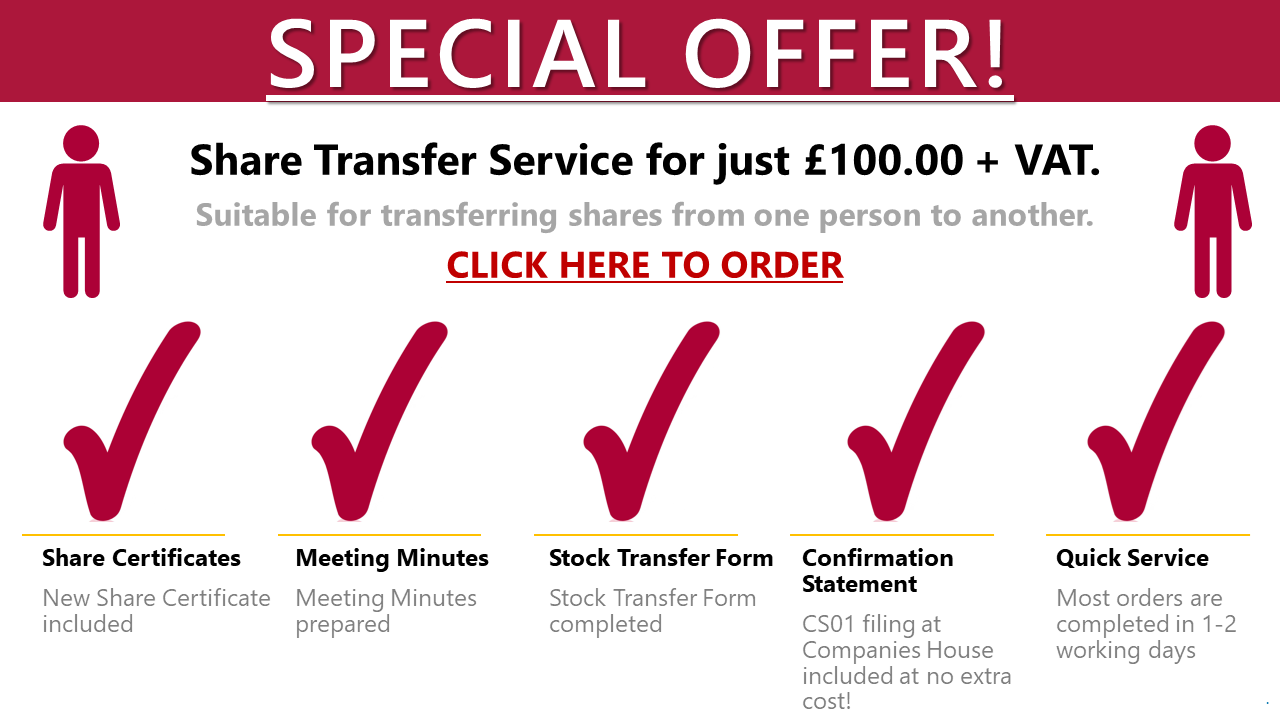In essence, shares in a company are a form of property. However the ownership of these shares can be sold / transferred to other people as stated in the Companies Act 2006.
Shares can be transferred for various reasons. Some people will transfer in exchange for a cash payment whilst others will exchange them for goods or services, or to write off debts. In some cases, shares may be gifted to family members. In some circumstances a shareholder may no longer wish to be involved with a company and will transfer the shares to another person for no payment (often referred to as nil consideration).
There may be restrictions on transfers of shares and as such, it is imperative that the director checks the articles of association and shareholders agreement before allowing the activity to commence. For example such restrictions could be pre-emption rights, or the directors’ power to authorise the transfer of shares may be impeded.
A Stock Transfer Form needs to be completed to enable to transfer to take place. Information required is as follows:
- The name of the company and its Company Registration number
- Quantity of shares to be sold
- Class(es) of shares to be sold
- Transferor name and address (existing shareholder)
- Transferee name and contact address (new shareholder)
- Amount on each unit that is paid or unpaid
- If applicable, non- cash payment details
- Company Director authorised signature
- If applicable, stamp duty liability
According to www. gov.uk, if the value of the sale is under £1,000 you will not normally need to tell HMRC about the transfer, however you will need to do the following:
‘’make sure the first exemption certificate on the back of the stock transfer form has been completed –you don’t need to complete this certificate if you don’t pay anything for the shares’’
And
‘’send the stock transfer form and the share certificate to the registrar of the company you’ve bought shares in – whether you gave anything away for the shares or not’’
If the sale value of the shares exceeds £1000 then the transferee will be liable to pay stamp duty of 0.5%. It should take approximately 5-10 working days for HMRC to deal with the stock transfer form and a further 5 working days to receive it back via the post. It is important to ensure that the form is completed and filed correctly to avoid the document being rejected by HMRC.
If stamp duty has been paid, when the form has been received back, it needs to be sent to the registrar of the company (typically a director of the company) where you have bought your shares from, along with the share certificate that needs to be cancelled. The registrar will then issue a new share certificate.
The transfer of shares in a limited company is a private transfer. It is not recorded on the public register. If you need the details of a new shareholder to be updated at Companies House, you need to file a new Confirmation Statement (Form CS01).
You can download a share transfer form here. This form is provided free of charge but we cannot assist you in completing the document without checking on your company details and existing structure.
Please note – We are pleased to provide this information as a guide on changing shares. You should seek professional advice if you are not sure whether you can transfer shares in your company. If you need assistance transferring shares, we will be pleased to provide a quote for our services.



